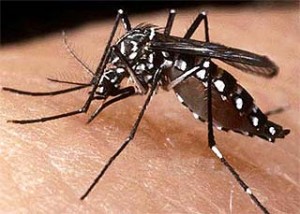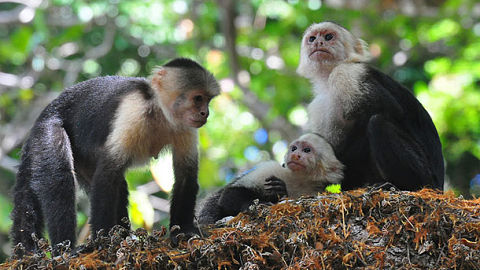Costa Rica Health News – Ten years ago an investigation began with the purpose of getting a better understanding of the cause of deaths of monkeys in different areas of Costa Rica. The study was conducted with the help of several of the best Costa Rican Universities.
 The analysis resulted in a better understanding of diseases like malaria, dengue, and Nilo. Through the help of some of the best scientist in the country, they were able to examine how these illnesses affect monkeys differently than humans.
The analysis resulted in a better understanding of diseases like malaria, dengue, and Nilo. Through the help of some of the best scientist in the country, they were able to examine how these illnesses affect monkeys differently than humans.
The investigation was funded by Conare for the collaboration of scientist and professionals from: University of Costa Rica (UCR), University National (UNA), Institute of Technology of Costa Rica (ITCR), and State University of Distance (UNED). All the universities specialized in different areas of the project. For example, ITCR focused population count, habitats and geographical fragmentation; while UNA focused on the health of hominids.
Results of the study are interesting since monkeys and humans have such a biological resemblance. Scientist concluded that some diseases such as dengue and malaria that can cause humans health problems does not affect monkeys.
Conclusion is based on a study of the four different types of monkeys in the country which are: white face, titi, congo and squirrel. Once a month five to fifteen people would visit a designated area where these monkeys can be found and they would put the monkeys to sleep and examine their health. Then, they would take blood samples to test for diseases.
A total of seventy-six wild monkeys were captured in the effort of this study. Out of the seventy-six, twenty-one were infected with dengue, malaria, Nilo and or encephalitis. What was stunning about these monkeys is that they were all in great health conditions. The scientist believe that the geographical difference between the wild monkeys living in a tropical area compared to the urban lifestyle of humans is a major reason why illnesses like dengue affect monkeys and humans in a different way.
In times when the number of cases for diseases like dengue are at an all time high in the country, studies such as this one can benefit people through a better understanding of these diseases and how to prevent transmitting them.
By Brenda Sotelo

